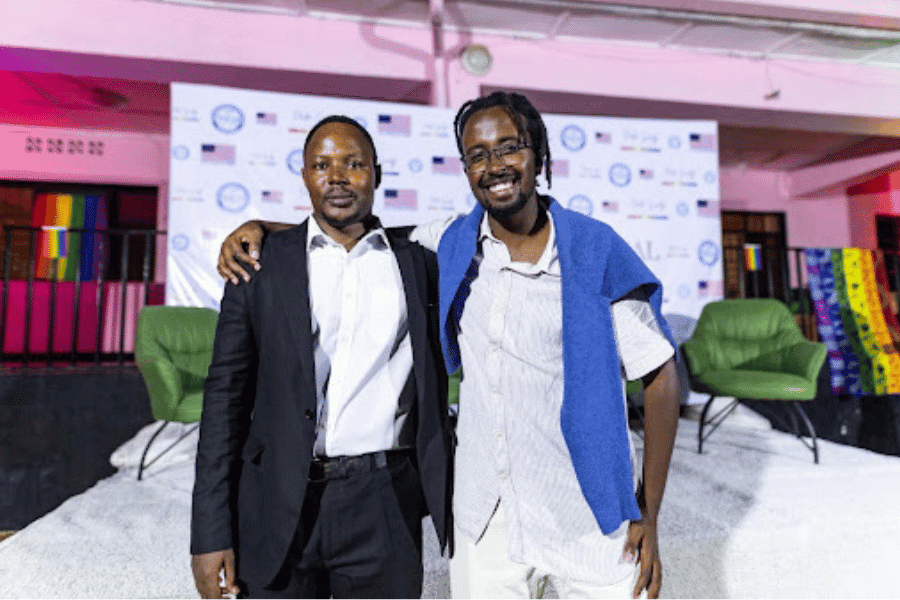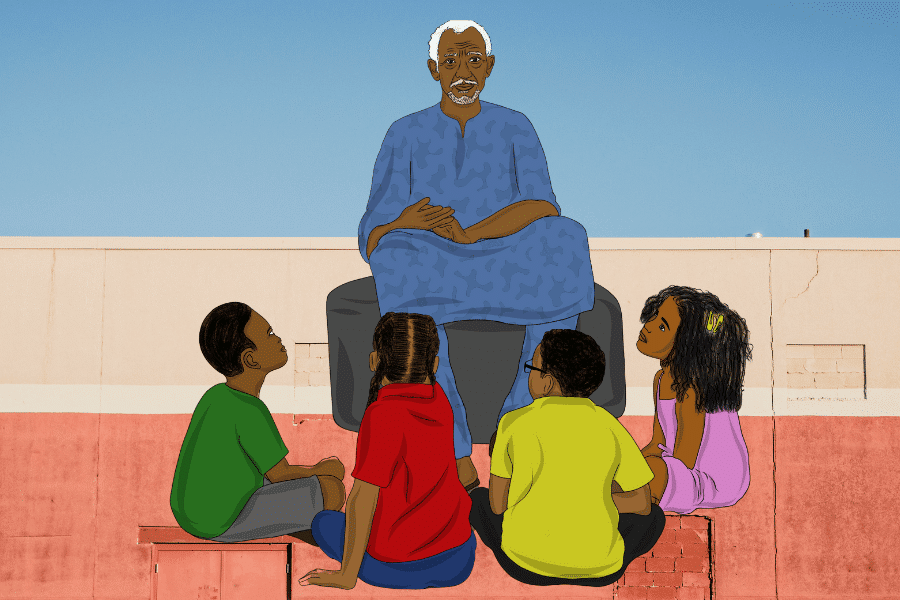
by Jeremy Solomons | 13 Oct 2025 | Culture, Human Rights
Around the world we see LGBTQ rights challenged, attacked and denied. But in parts of Africa, Queer advocates say perspectives are changing. Queer activist/educator Kevin Ngabo (right) and human rights advocate Egide Habinshuti at a Youth Pride event in Kigali,...

by Jeremy Solomons | 4 Apr 2025 | Journalism, Media Literacy, News Decoder Tips
We all make mistakes but as journalists, we must do everything we can to make sure we report the facts and find the truth. A notepad has three checks on it under the word Information. (Illustration by News Decoder) In News Decoder’s Top Tips, we share advice for...

by Jeremy Solomons | 19 Mar 2025 | Africa, Culture, Decoder Replay
While around the world misinformation and lies abound, in Africa, stories transmit morals, acceptable behavior and universal truths. Children in a circle listen to a story. (Credit: Kowal2701) Editor’s note: Tomorrow we celebrate World Storytelling Day. In...

by Jeremy Solomons | 14 Feb 2025 | Africa, Decoders, History, Human Rights, Politics
African leaders work to contain intensified conflict in the eastern part of the Democratic Republic of the Congo and ensure it won’t spread to neighboring nations. M23 rebels release captured Romanian mercenaries, who were fighting alongside Democratic Republic...

by Jeremy Solomons | 5 Sep 2024 | Educators' Catalog, History, Human Rights, Politics
Can even leaders on the wrong side of history be credited for good outcomes? Can awful leaders be awe-inspiring? Then-Libyan President Moammar Gaddafi arrives in Venezuela, 25 September 2009 to attend the Africa-South America, ASA, summit. (AP Photo/Ariana Cubillos)...
As half the world goes to the polls this year, Jeremy Solomons asks: Can even leaders on the wrong side of history be credited for good outcomes? Can awful leaders be awe-inspiring? Explore leadership, leaders and their legacies with your class and push them to develop their critical thinking and argumentation skills.
Exercise: Choose a controversial leader, dead or alive. You may agree or disagree with their position, politics or legacy. Build a picture of some of their decisions that had widespread negative impacts and find some positive aspects to their leadership. Next, play devil’s advocate and try to argue the good or positives that may have come from negative decisions. How might people on both opinion sides see the leader’s legacy? To conclude, students can express their own views on the matter and find nuanced arguments and discourse to express these.





